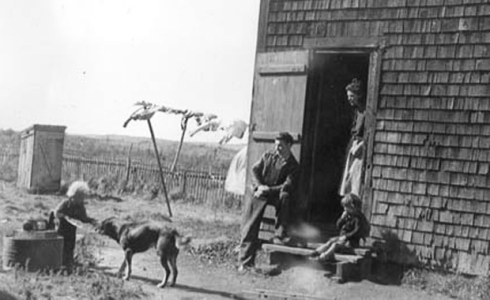One interesting thing about Remembrance Day is that the solemn ceremonies seem like the exact opposite of protest and radical critique. But as November 11 approaches, two songs from the Cape Breton Protest Songs project strike me as very relevant to remembering what it was like for veterans and their families in the time period immediately after the war, when this “history” was still very fresh in everyone’s heads.
“The Applicant” is one such song. The poem itself is by Dawn Fraser, and local musician Vic Tomiczek gives it a beautiful, heartfelt treatment with his arrangment. You can stream the song from the site here, where you can also read the lyrics and a bit more about the experiences of World War I veterans in the 1920s.
This was a time when being a veteran was something of a stigma, and society was likely at a loss for how to deal with so many young men who came home as broken shadows of what they used to be:
It’s very kind of you, Mum, to call to see my Dan.
Since he came back he seems to be a very wreck of man;
I think it must be German gas, still inside his head,
He talks of places back in France and lads that now are dead.
The second song is more about the experiences of young women in the same time period. The Old Song Resung tells of lack of access to birth control and family planning, children growing up in poverty, and the lack of opportunity for those children when they grow up. This one is arranged and performed by Breagh MacKinnon and contains some of the most haunting lines on the album:
Johnny’s a drummer and drums for the king,
(A bullet left Johnny a sodden crushed thing!
But Johnny knew glory and mother knew pain
Besides she’s expecting a baby again.)
On the CB Protest Songs project itself:
There are simply too many good things to say about this project, and it warrants its own blog post later. But by way of brief introduction, a local assortment of mostly young musicians were given song lyrics and poems that dealt with the lives and labour struggles of Cape Breton workers in the 1920s. The result is a truly remarkable album, which you can read more about here.




